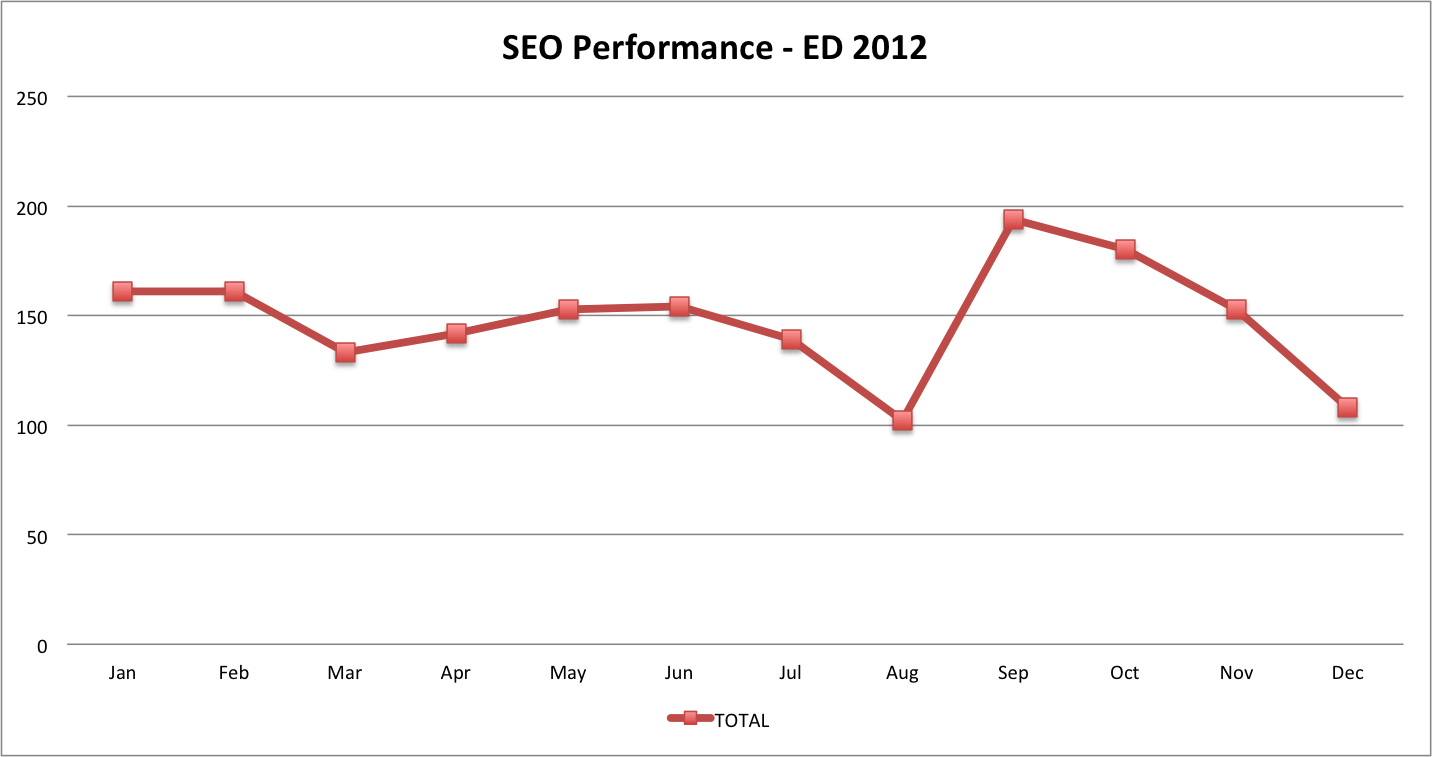The aim of this article is not to downgrade SEO Agencies, or indeed give the impression that search optimisation is a waste of time. The issue it addresses is that most clients and businesses need to better understand how organic listings can be setup successfully, not just an income stream for a SEO agency or freelancer.
1. Use Analytics to Measure Your Performance (Google is Free)
The first challenge is to measure your traffic. If you don’t measure the visitors to your site, how can you then work out whether Search Engine Optimisation is working for you?
Whilst there are many good walkthroughs for setting up Google Analytics, and even some from Google themselves, the reality is that any web developer or designer can set this free service up with a minimum of fuss.
The next step is to login and take a look around. Too many businesses who have analytics never look at it. If your website is a serious part of your business, then you need to take it seriously too. Get to know Analytics, and in time, you will LOVE it, not because it’s beautiful, but because it can do beautiful things to your business performance!
2. (Virtually) Ignore Search Ranking Reports
This is a little contentious, but strikes at the heart of SEO. The old claim of ‘Page 1’ ranking or performance can miss out the two most important first steps:
- The relevance of the keyword phrase: getting a good ranking is great, but not for terms which bear no relevance to your products or services
- The popularity of the search terms: there is no use getting excited about ranking for a term no-one uses!
We are not saying that ranking reports are useless, but merely that they need to know their place, which is after ensuring that the keywords being targeted are both relevant and popular.
3. Understand The Traffic a SEO Agency Actually Delivers
Once you access Analytics, you can quickly find your ‘Organic’ traffic into the business. We have three ‘hats’ into which we put the keyword phrases we measure:
- Branded – keyword phrases to do directly with the business brand, branded services or people who work for the business
- Relevant – keyword phrases which do not mention the brand, but are relevant to the services and products supplied
- Irrelevant – keyword phrases which are irrelevant to your brand and business and which you (mainly) accidentally rank for
The ONLY category which your SEO should be working in is the ‘Relevant‘ category. The ‘Branded’ phrases you will end up ranking for regardless, it is something that Google is fantastic at doing for you. The ‘Irrelevant’ phrases are to be ignored, if your SEO points to these, then just ask them to focus on the business aims as these are of no value to you.
4. Measure the Traffic and Use it to Value Your SEO Efforts

The spreadsheet illustrates clearly how we can then take this ‘Relevant’ traffic and work out the value of it to our business.
The guesswork is now gone, we actually understand the value of the traffic.
To clarify, we go through these steps:
- Make sure we are viewing organic keywords only
- Split out the keywords into their categories (see above)
- Measure them over the course of time (seek growth)
- Value them based on visit and/or enquiry
Then, we have something to work with, and can evaluate the performance of our SEO agency which will help us lead the process in the right direction.
5. Make Sure You Measure Correctly!
So, what happened in the top image, did the business in question upset Google and get ‘whacked’? Or, was it an update which affected rankings? Perhaps the site changed dramatically?
No, it was not an external factor causing the drop in organic traffic. In this instance it was that the client was running a Google AdWords campaign and didn’t tag the links correctly into the website.
So the reporting was bundling organic and paid traffic together and giving the impression that the overall traffic was really strong. Worse, it was also reporting that there were rankings on many of the target keyword phrases when it was the advertising, not the SEO, achieving this. It was only when we got involved that this error was corrected.
For any business, the key is to set a long term SEO objective for your business – if natural traffic can win you business, then SEO is an excellent channel to market. But only if tackled properly and effectively. If you need some help, just call us on 01962 605 000, or read more about our marketing services as we think SEO is great, but only successful as a part of the overall digital marketing mix.







